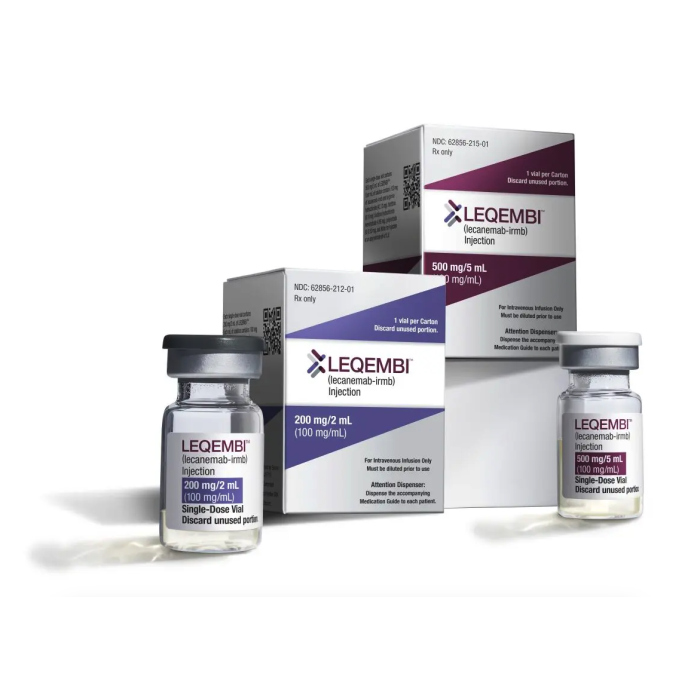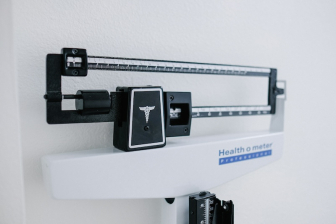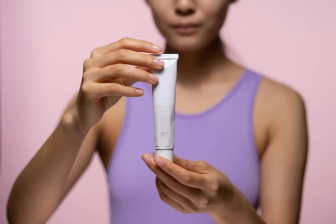Can Leqembi be administered at home? Home infusions, autoinjectors, and more.
Last updated: 15 January 2024

You can legally access new medicines, even if they are not approved in your country.
Learn howYour doctor and you have made a judgement call on including Leqembi in your treatment plan. You have a prescription, which is the next step to accessing Leqembi (even if it's not approved in your country). However, your next challenge will likely be how to get your Leqembi infusions administered.
What if you can't travel to a clinic for every infusion? Is a Leqembi home infusion possible? Or can Leqembi be self-administered?
The answer for most people is no. In some countries, there are medically-trained service providers and home nursing offering Leqembi home infusions. If that's not the case in your country, then you won't be able to self-administer Leqembi at home.
At least, not yet. Leqembi's manufacturer, Eisai, is working on a revised version of the medicine. Once available, patients might be able to inject Leqembi at home 1. This would be a relief for patients in need. Read on to find out all about the (future) possibilities.
Why can't Leqembi be administered at home now?
Currently, Leqembi is available in a vial. It can only be administered as an intravenous infusion. This is a procedure you cannot perform yourself. It needs to be performed by a medical professional. Often, this will be your treating doctor or a trained professional in a clinic.
Before administering the Leqembi infusion, a pharmacist will need to determine the appropriate dosage for you and mix it with sodium chloride solution in an infusion bag. This bag will then be connected to an IV drip by your nurse, doctor, or another medical professional.
In addition to performing the infusion itself, monitoring you for side effects is another reason you need to go to a clinic for your Leqembi infusion.
The Leqembi infusion itself requires about one hour. After that, you will be observed for 3 hours, with a follow-up by phone later the same day. After the second and third Leqembi infusion, the observation period can be shortened to 2 hours, and further to 30 minutes for the following infusions 3. This is a precaution meant to ensure you don't experience any serious side effects.
When will it be possible to self-administer Leqembi?
Leqembi’s manufacturer, Eisai, has declared its intention to apply for FDA approval to the subcutaneous Leqembi version within its fiscal 2023 year (which runs until March 2024) 1.
However, it's currently unclear when the new subcutaneous version of Leqembi will be available to patients. First, it would need to demonstrate comparable safety and efficacy to its intravenous variant. Secondly, it would require the approval of the FDA (and other medicine approval agencies around the world).
The effects of Leqembi when administered subcutaneously (under the skin) with an autoinjector are already being studied. This is part of an open-label extension to the Clarity AD study, which was the basis for Leqembi's FDA approval4.
Interim results shared in October, 2023, are encouraging. Weekly Leqembi injections showed 14% more amyloid plaque removal compared to bi-weekly infusions. In line with expectations, also a lower rate of systemic injection reaction rates was observed, compared to infusions. With regards to the incidence of ARIA-E (a serious adverse effect associated with Leqembi), there was no initial difference between subcutaneous and intravenous administration 5.
The autoinjection with Leqembi will most likely be administered to the stomach or thighs. The frequency of injections, as well as the doses needed are still to be determined.
What would be the benefits of injecting Leqembi at home?
In addition to saving you the trip to a medical institution for your bi-weekly infusions, using an autoinjector for Leqembi would also mean:
- Quicker administration. Injecting Leqembi at home would take about a minute, compared to an hour when administered intravenously 1.
- Possible reduction in side effects. When administered in the skin, Leqembi is absorbed more slowly, which reduces the medicine's maximum blood concentration. This might reduce side effects such as brain swelling or bleeding. Whether this is the case remains to be confirmed by the ongoing clinical trial 1.
- Less pressure (and costs) for healthcare systems. Currently, every Leqembi infusion requires a medically trained professional's time. This creates a financial burden for healthcare systems that are often stretched for resources as it is. The personnel and financial challenges are among the concerns voiced by the European Medicines Agency in the process of evaluating Leqembi's marketing authorization application in the EU 2.
What would be the downsides of injecting Leqembi at home?
When Leqembi is injected subcutaneously, this lowers the maximum blood concentration of the medicine. As a result, you might need to inject the medicine more often than its current intravenous variant. This could potentially add to the treatment’s costs to patients and insurance companies.
However, this is only a speculative downside. Leqembi’s manufacturer may make different concentrations of Leqembi available for self-administration, or find a different solution. We’ll know more about the up- and downsides of injecting Leqembi at home once this option is thoroughly tested, approved and available on the market.
References:
- Eisai to enable Alzheimer's drug Leqembi to be injected at home. Nikkei Asia, 14 July 2023.
- Grover, Natalie. Focus: European Alzheimer's experts unconvinced by new Eisai, Biogen drug. Reuters, 13 June 2023.
- Lecanemab: Appropriate Use Recommendations. The Journal of Prevention of Alzheimer's Disease, 27 March 2023.
- Eisai starts clock ticking on filing for subcutaneous Alzheimer's drug. Fierce Pharma, 7 February 2023, Accessed 29 August 2023.
- Eisai Presents New LEQEMBI® (lecanemab-irmb) Investigational Subcutaneous Formulation Interim Study Results and Clinical Improvement Data in Earlier Stages of Early Alzheimer's Disease From Additional Analyses of Clarity AD at The Clinical Trials On . Biogen | Investor Relations, 25 October 2023.





